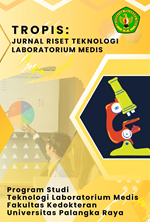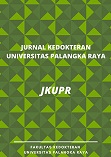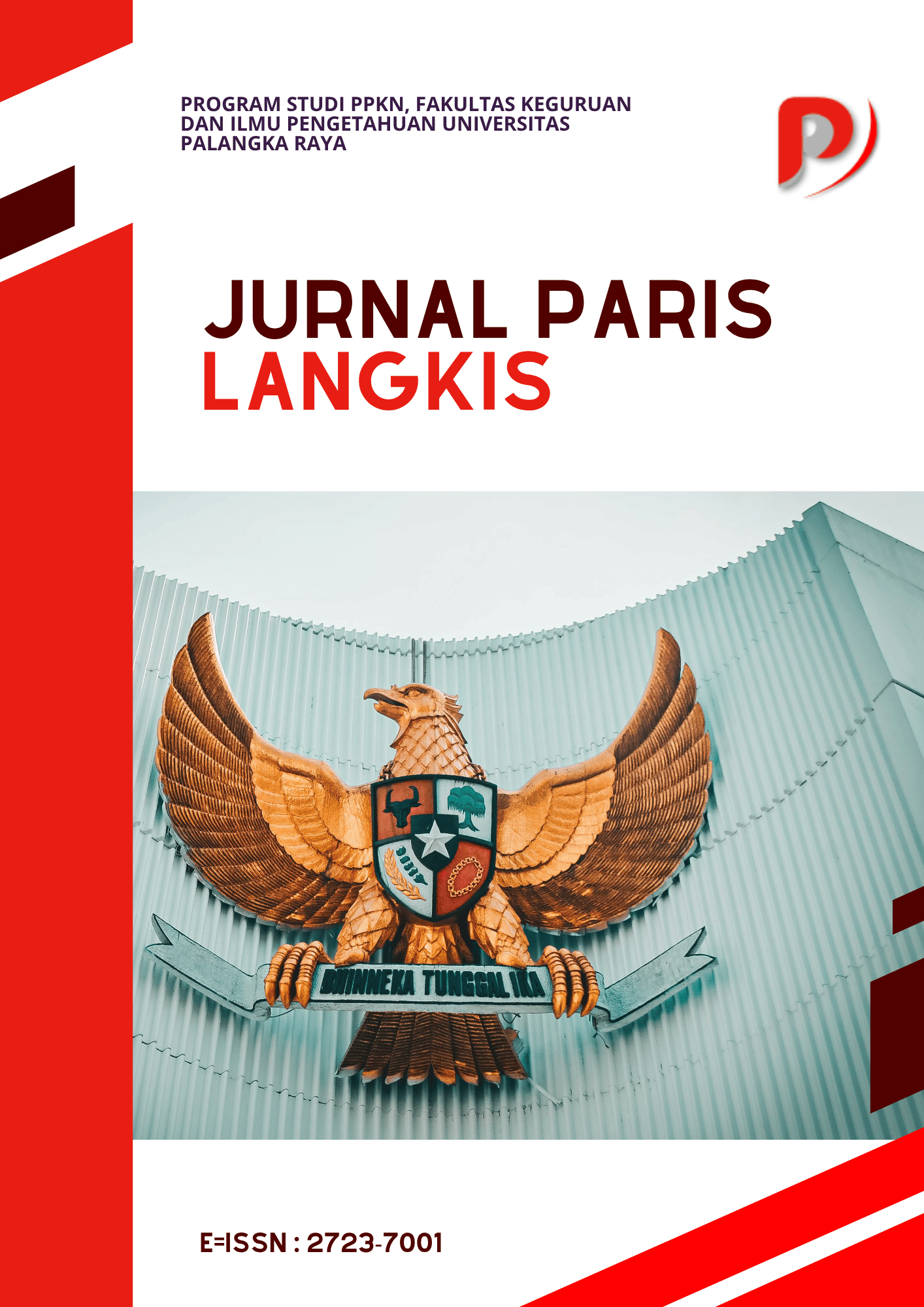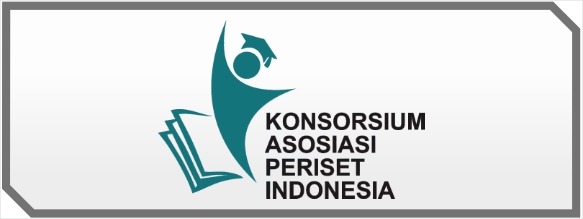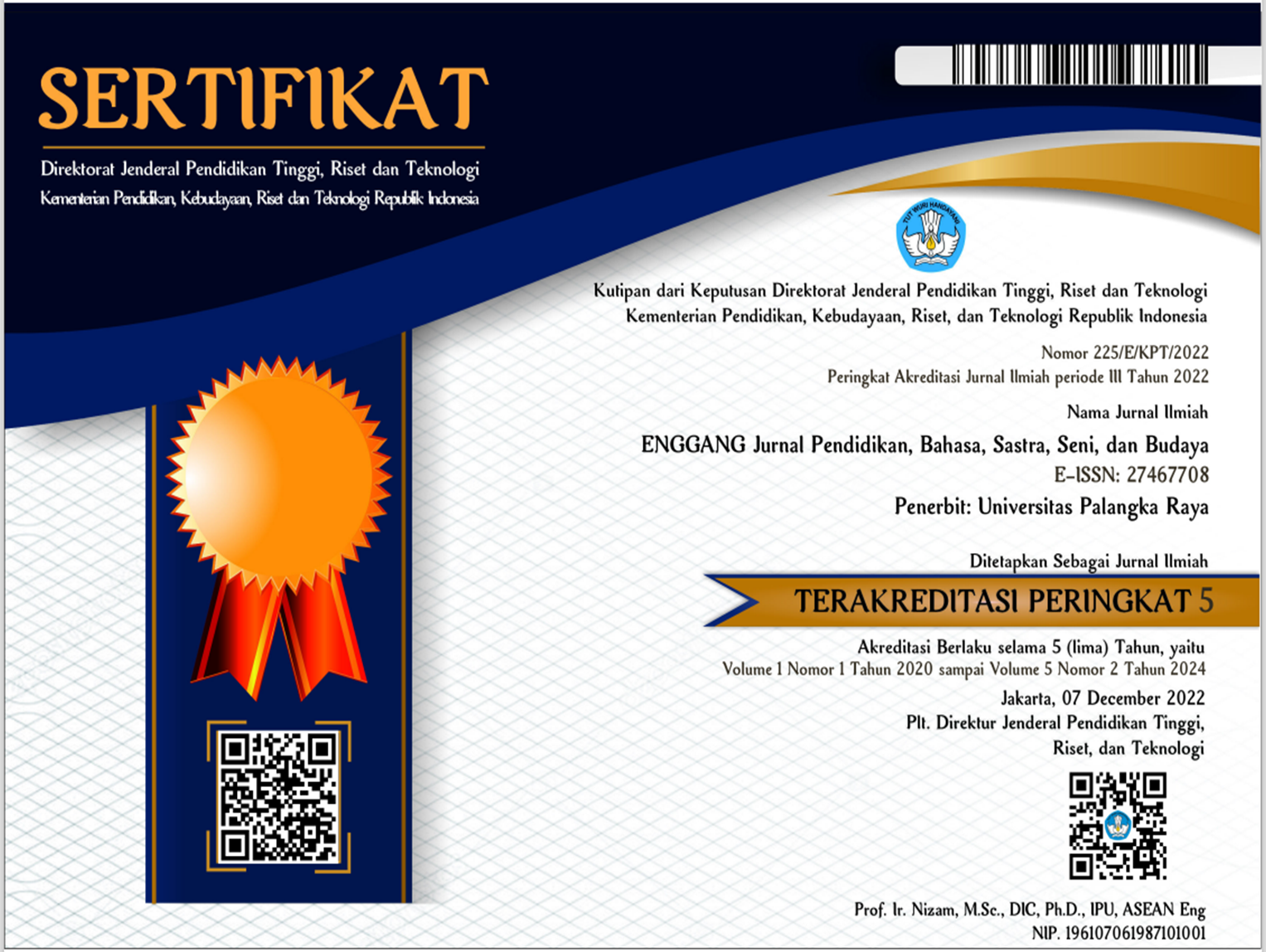Journal Description
Jurnal Online Universitas Palangka Raya adalah sistem penerbitan online berbasis Open Journal System yang diterbitkan oleh Universitas Palangka Raya.
Journals
-
AgriPeat
- Journal Title : Agripeat Fakultas Pertanian UPR
- Initials : Agp
- Frequency : Maret dan September
- Print ISSN : 1411-6782
- Online ISSN : 2620-6935
- Editor in Chief : Dr. Hastin Ernawati Nur Chusnul Chotimah, SP, MP.
- DOI : https://doi.org/10.36873/agp
- Publisher : Fakultas Pertanian Universitas Palangka Raya
- Sinta Indeks : https://sinta3.kemdikbud.go.id/journals/?q=Agripeat
- Terakreditasi : SINTA 4 (2023 – 2026)
- Berdisi Sejak : 2000 (Terbit Pertama Maret 2000 (Vol. 1 No. 1)
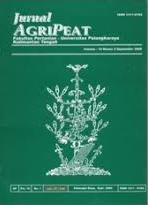 Merupakan Jurnal yang menyajikan berbagai hasil penelitian baik penelitian oleh Dosen Fakultas Pertanian Universitas Palangka Raya maupun hasil penelitian dari instansi lain yang berhubungan dengan Agronomi dan pemanfaatan lahan gambut untuk pertanian
Merupakan Jurnal yang menyajikan berbagai hasil penelitian baik penelitian oleh Dosen Fakultas Pertanian Universitas Palangka Raya maupun hasil penelitian dari instansi lain yang berhubungan dengan Agronomi dan pemanfaatan lahan gambut untuk pertanian -
HUTAN TROPIKA
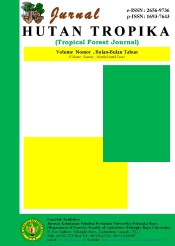 Tropical Forests Journal is a journal that focused on the science and technology of tropical forestry and also all aspects concerned. Tropical Forests Journal has printed-ISSN 1693-7643 and online-ISSN 2656-9736. Tropical Forests Journal has been accredited rating 4 Decree Based on the Decision of the Director General of Higher Education, Research, and Technology, Ministry of Education, Culture, Research, and Technology of the Republic of Indonesia Number 72/E/KPT/2024 regarding the Accreditation Ranking of Scientific Journals for Period I of 2024 dated April 1, 2024. Tropical Forests Journal is managed by Forestry Department, Faculty of Agriculture, Palangka Raya University.
Tropical Forests Journal is a journal that focused on the science and technology of tropical forestry and also all aspects concerned. Tropical Forests Journal has printed-ISSN 1693-7643 and online-ISSN 2656-9736. Tropical Forests Journal has been accredited rating 4 Decree Based on the Decision of the Director General of Higher Education, Research, and Technology, Ministry of Education, Culture, Research, and Technology of the Republic of Indonesia Number 72/E/KPT/2024 regarding the Accreditation Ranking of Scientific Journals for Period I of 2024 dated April 1, 2024. Tropical Forests Journal is managed by Forestry Department, Faculty of Agriculture, Palangka Raya University.
License: The authors of the publications hold the copyright and retain publishing rights without restrictions. Authors retain copyright and grant the Tropical Forest Journal right of first publication with the work simultaneously licensed under a CC-by (Creative Commons Attribution 4.0 International License) that allows others to share the work with an acknowledgment of the work's authorship to authors and initial publication in Tropical Forests Journal.Indexed By:
GARUDA - SINTA - GOOGLE SCHOLAR - CROSSREF - BASE - DIMENSIONS - NELITI -
Photobionts: Biology and Education Journal
Photobionts (Biology and Education Journal) is a Peer-Reviewed journal that is published 4 (four) times a year in March, June, September, and December. Photobionts aims to be a journal publishing high-quality and innovative scientific works that provide new information and knowledge regarding biological science and biology education. In addition, it is hoped that this journal can facilitate biology education students to publish the results of their thesis research.
indexed by:
- Journal Title: Photobionts: Biology and Education Journal
- Initials: Photo. Bio. Edu.
- Grade: -
- Frequency: March, June, September, December (4 times a year)
- Print ISSN:
- Online ISSN:
- Editor in Chief: Chaidir Adam, S.Pd., M.Pd.
- Managing Editor: Awalul Fatiqin, M.Si.
- DOI: 10.37304
- Publisher: Faculty of Teacher Training and Education, University of Palangka Raya
-
Prosiding Seminar Nasional Fakultas Kedokteran Universitas Palangka Raya
- Journal Title: Prosiding Seminar Nasional Fakultas Kedokteran Universitas Palangka Raya
- Initials: PKK
- Frequency: 1 kali pertahun
- Online ISSN: XXXX-XXXX
- Editor in Chief: Arif Rahman Jabal, S.Si, M.Si
- Publisher: Fakultas Kedokteran Universitas Palangka Raya
Prosiding Seminar Nasional Fakultas Kedokteran Universitas Palangka Raya, Fakultas Kedokteran Universitas Palangka Raya merupakan sarana publikasi luaran yang dihasilkan dalam setiap kegiatan pelaksanaan Seminar Nasional yang diadakan setiap tahun untuk mendesiminasikan hasil dan review penelitian. Prosiding ini berfokus di bidang kedokteran dan kesehatan. Prosiding Kedokteran dan Kesehatan terjadwal publikasi setiap setahun sekali
-
Prosiding Seminar Nasional Pendidian Profesi Guru FKIP UPR
Prosiding Seminar Nasional Program Studi PPG FKIP Universitas Palangka Raya merupakan publikasi ilmiah yang memuat kumpulan artikel hasil penelitian dan kajian ilmiah yang dipresentasikan dalam seminar nasional. Prosiding ini fokus pada pengembangan profesionalisme guru dan inovasi pembelajaran dalam konteks pendidikan Indonesia.
-
Tropis: Jurnal Riset Teknologi Laboratorium Medis
- Journal Title: Tropis: Jurnal Riset Teknologi Laboratorium Medis
- Initials: Tropis
- Frequency: Januari dan Juni
- Print ISSN:
- Online ISSN: 3046-8868
- Editor in Chief: Arif Rahman Jabal, S.Si, M.Si
- DOI:10.37304/tropis
- Publisher: Program Studi Teknologi Laboratorium Medis
Tropis: Jurnal Riset Teknologi Laboratorium Medis dengan scope Mikrobiologi, Parasitologi, Imunologi, Kimia Klinik, Hematologi, Sitohistoteknologi, Toksikologi memuat original article dan review article baik dalam bahasa indonesia dan bahasa inggris. Terbitan 2 kali setahun setiap Januari dan Juni.
-
Cendekia
Cendekia adalah jurnal mahasiswa yang diterbitkan oleh Universitas Palangka Raya (UPR), sebagai media publikasi hasil Skripsi Mahasiswa UPR ke khalayak luas. Jurnal ini diterbitkan secara berkala 4 kali setahun pada bulan Maret, Juli, September, Desember.
Jurnal Cendekia memiliki tiga ruang lingkup yaitu:
- Science and Engineering, yang akan mengakomodasi hasil penelitian mahasiswa Fakultas Pertanian, Teknik, Kedokteran dan MIPA.
- Humaniora dan Sodial Science, yang akan mengakomodasi hasil penelitian mahasiswa Fakultas Ekonomi dan Bisnis, Hukum dan FISIP.
- Education, yang akan mengakomodasi hasil penelitian mahasiswa Fakultas Keguruan dan Ilmu Pendidikan.
-
Sustainability Accounting Journal
Sustainability Accounting Journal (SAJ) is a peer-reviewed publication that publishes high-quality original research from Palangka Raya University's Accounting Department, Faculty of Economics and Business. SAJ highlights the relationship between accounting, finance, and environmental challenges, as well as social and economic issues in businesses, governments, educational institutions, regions, and societies.
Below are some suggested (but not limited to) sustainability and sustainable development themes for you to contribute to: Carbon accounting; environmental accountability; environmental auditing; environmental management accounting; green finance; integrated reporting; material flow cost accounting; sustainability accounting, accountability, and reporting.
-
JURNAL PERSPEKTIF ARSITEKTUR
Architectural Perspective Journal (JPA) is a peer-reviewed and open access journal that publishes original research in architecture and all multidisciplinary disciplines related to Architectural design. The purpose of this journal is to disseminate all progress information in the field of Architecture and contribute to the understanding and development of the world of Architecture education. We are also happy to accept student writing assignments. JPA is published twice a year every June and December. Take part here : Link Submission JPA
-
Prosiding Seminar Nasional Sains dan Teknologi Fakultas Matematika dan Ilmu Pengetahuan Alam Universitas Palangka Raya
E-SNST Merupakan Media Publikasi Seminar Nasional FMIPA Universitas Palangka Raya yang dilakukan setiap Tahun. E-SNST merupakan wadah publikasi Hasil Riset para ilmuan, Akademisi, Peneliti, Praktisi, Mahasiswa, Pihak Swasta maupun Pemerintah, untuk saling Bertukar dan berbagi pengalaman guna menjawab tantangan tantangan Teknologi yang memainkan peran besar dalam menciptakan kehidupan yang lebih baik. Ruang lingkup E-SNST meliputi: Instrumentasi, Fisika Terapan, Fisika Medis, Geofisika, Material, Kimia organik, Kimia anorganik, Kimia Fisik, Kimia Anorganik, Kimia Lingkungan, Biodiversitas, Sains dan Pembelajaran, Etnobiologi, Genetika, Kesehatan dan Pangan, Biokimia, Energi, Bioteknologi, Mikrobiologi, Ekologi, Analisis, Aljabar, Statistika, Matematika Terapan, Kombinatorika, Aktuaria, Komputasi, biologi farmasi, farmakologi dan farmasi klinik, teknologi sediaan farmasi, manajemen farmasi, kimia farmasi dan sains.
- Journal Title: Prosiding Seminar Nasional Sains dan Teknologi Fakultas Matematika dan Ilmu Pengetahuan Alam Universitas Palangka Raya
- Initials: E-SNST
- Abbreviation: E.Snst
- Frequency: 2 Issue per year
- Print ISSN:
- Online ISSN: 2686-293X
- Editor in Chief: Retno Agnestisia, Ph.D.
- DOI:
- Publisher: FMIPA University of Palangka Raya
- Journal Title: Prosiding Seminar Nasional Sains dan Teknologi Fakultas Matematika dan Ilmu Pengetahuan Alam Universitas Palangka Raya
-
Jurnal Teknika: Jurnal Teoritis dan Terapan Bidang Keteknikan
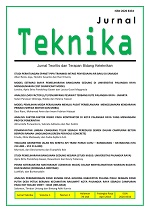
Jurnal Teknika: Jurnal Teoritis dan Terapan Bidang Keteknikan adalah jurnal ilmiah yang diterbitkan 2 kali setahun pada Bulan April dan Oktober oleh Fakultas Teknik Universitas Palangka Raya, e-ISSN 2622-3317 dan p-ISSN 2620-8334.
-
JURNAL TEKNIK PERTAMBANGAN

Jurnal Teknik Pertambangan (JTP) merupakan media komunikasi yang berupa penelitian, kajian ataupun penemuan dalam bidang Teknik Pertambangan. JTP dalam setahun terbit dua kali yaitu pada bulan Febuari dan Agustus. Redaksi menerima Naskah yang belum dipublikasikan pada media yang lain. Naskah yang masuk akan di evaluasi dan disunting oleh Tim Redaksi untuk keseragaman format, istilah dan tata cara lainnya.
Pada Jurnal JTP diberlakukan batas maksmimum Plagiasi sebesar 25% dengan menggunakan software scan Plagiarism dari Turnitin (wajib melampirkan).
Journal Title Jurnal Teknik Pertambangan (JTP) P-ISSN/E-ISSN 2087-1058 / 2988-7712 DOI Prefix 10.36873 by Crossref Editor in Chief Neny Sukmawatie, S.Hut., M.P. Publisher Program Studi Teknik Pertambangan, Fakultas Teknik, Universitas Palangka Raya, Indonesia Frequency 2 issues per year (February, and August) Indexed by Dimensions | Google Scholar | GARUDA -
Agrienvi: Jurnal Ilmu Pertanian
- Journal Title: Agrienvi: Jurnal Ilmu Pertanian
- Initials: Agrienvi
- Frequency: June & December
- Print ISSN: 1978-4652
- Online ISSN: 2715-0100
- Editor in Chief: Dr. Alpian
- DOI: https://doi.org/10.36873/aev
- Sinta 5: https://sinta.kemdikbud.go.id/journals/?q=Agrienvi
- Publisher: Fakultas Pertanian, Universitas Palangka Raya
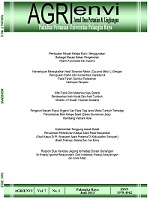
Agrienvi adalah akronim dari Agriculture and Environment ( Pertanian dan Lingkungan ). Agrienvi lahir pada tahun 2012 dicetuskan dan dikelola oleh dosen-dosen Fakultas Pertanian, UPR yg berdedikasi tinggi. Keberadaan Agrienvi sebagai bentuk sumbangsih pemikiran para dosen khususnya di lingkungan Pertanian dan Lingkungan dalam merespon dinamika penulisan ilmiah khususnya di dunia jurnal. Selain itu, Agrienvi sebagai unsur yang mendukung implementasi salah satu komponen tri dharma perguruan tinggi. Journal ini sudah terakreditasi sinta 5 di ARJUNA RISTEKDIKTI. Secara berkala Agrienvi diterbitkan setahun 2 (dua) kali yaitu di bulan Juni dan Desember. Artikel yang diterima dari kontributor diselaraskan dengan tema utama Agrienvi yaitu di bidang ilmu-ilmu pertanian dan lingkungan.
Jurnal Agrienvi adalah jurnal fakultas pertanian Universitas Palangka Raya, yang menyajikan hasil penilitan dari beberapa jursan yang ada di fakultas pertanian UPR.
-
Jurnal Teknologi Informasi: Jurnal Keilmuan dan Aplikasi Bidang Teknik Informatika
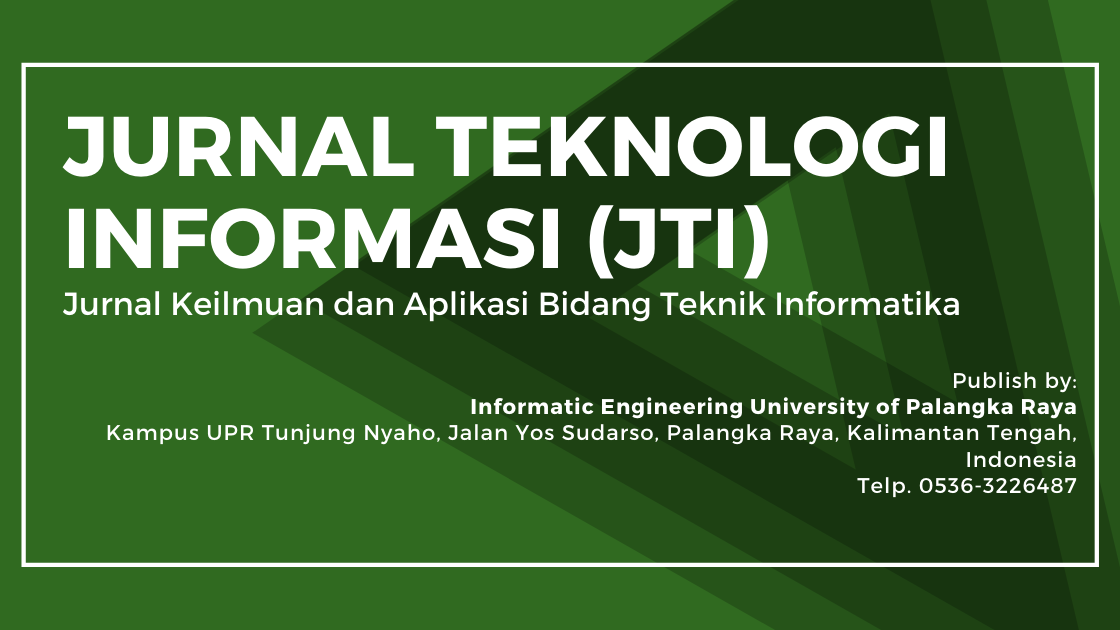
Journal title
Initials
Frequency
DOI
Print ISSN
Online ISSN
Editor-in-chief
Managing Editor
Publisher
IndexingJurnal Teknologi Informasi : Jurnal Keilmuan dan Aplikasi Bidang Teknik Informatika
: JTI
: 2 issues per year
: prefix 10.47111/JTI by
: 1907-896X
: 2656-0321
: Enny Dwi Octaviyani, ST., M.Kom
: Putu Bagus A. A. Putra, ST., M.Kom
: Teknik Informatika, Universitas Palangka Raya
: Dimensions | Garuda | Google Scholar
Jurnal Teknologi Informasi (JTI) is a journal managed and published by the Informatic Engineering, University of Palangka Raya, Indonesia. Since 2025, JTI has a publishing period twice in a year, namely in January and August.
Focus and scope of JTI includes: (a) Artificial Intelligence, (b) Image Processing and Pattern Recognition, (c) Data Mining, (d) Data Warehouse, (e) Big Data, (f) Data Analytics, (g) Data Science, (h) Natural Language Processing, (i) Software Engineering, (j) Information System, (k) Information Retrieval, (l) Mobile and Web Technology, (m) Geographical Information System, (n) Decission Support System, (o) Virtual Reality, (p) Augmented Reality, (q) IT Incubation, (r) IT Governance, (s) Internet of Thing
All articles in JTI will be processed by the editor through the Online Journal System (OJS), and the author can monitor the entire process in the member area. Articles published in JTI, both in hardcopy and soft copy, are available as open access licensed under a Attribution-NonCommercial-ShareAlike 4.0 International (CC BY-NC-SA 4.0) for educational, research and library purposes, and beyond that purpose, the JTI editorial board is not responsible for copyright infringement.
We invite you to collect articles / papers on JTI. The collection of articles in the JTI opens year-round and will be published twice a year in January and August. We do PEER REVIEW to maintain quality publications.
OAI Address
Jurnal Teknologi Informasi (JTI) has OAI address : http://e-journal.upr.ac.id/index.php/JTI/oaiBefore submission,
You have to make sure that your paper is prepared using the JTI paper TEMPLATE, has been carefully proofread and polished, and conformed to the author guidelines.Online Submissions
- Already have a Username/Password for Jurnal Teknologi Informasi (JTI)? GO TO LOGIN
- Need a Username/Password? GO TO REGISTRATION
Registration and login are required to submit items online and to check the status of current submissions.
-
Steam Engineering
- Journal Title: Steam Engineering : Journal of Science, Technology, Education, and Mechanical Engineering
- Initials: Steam Engineering
- Frequency: March and September
- Print ISSN: 2686-4673
- Online ISSN: 2686-4517
- Editor in Chief: Dr. Debora, M.Pd
- DOI: 10.37304
- Publisher: Program Studi Pendidikan Teknik Mesin, Fakultas Keguruan dan Ilmu Pendidikan (FKIP), Universitas Palangka Raya (UPR)

The journal Steam Engineering is published twice a year, in March and September, published by Program Studi Pendidikan Teknik Mesin, Fakultas Keguruan dan Ilmu Pendidikan (FKIP), Universitas Palangka Raya (UPR). The article manuscript Journal Steam Engineering already has ISSN. p-ISSN 2686-4673, e-ISSN 2686-4517. Address of the Editorial Board: Prodi Pendidikan Teknik Mesin, FKIP UPR, Kampus UPR Tunjung Nyaho Jalan H. Timang, Palangka Raya (73111), Kalimantan Tengah, Email: jurnal.steamengineering@fkip.upr.ac.id, Web: http://e-journal.upr.ac.id/index.php/JPTM
-
JOURNAL OF TROPICAL FISHERIES
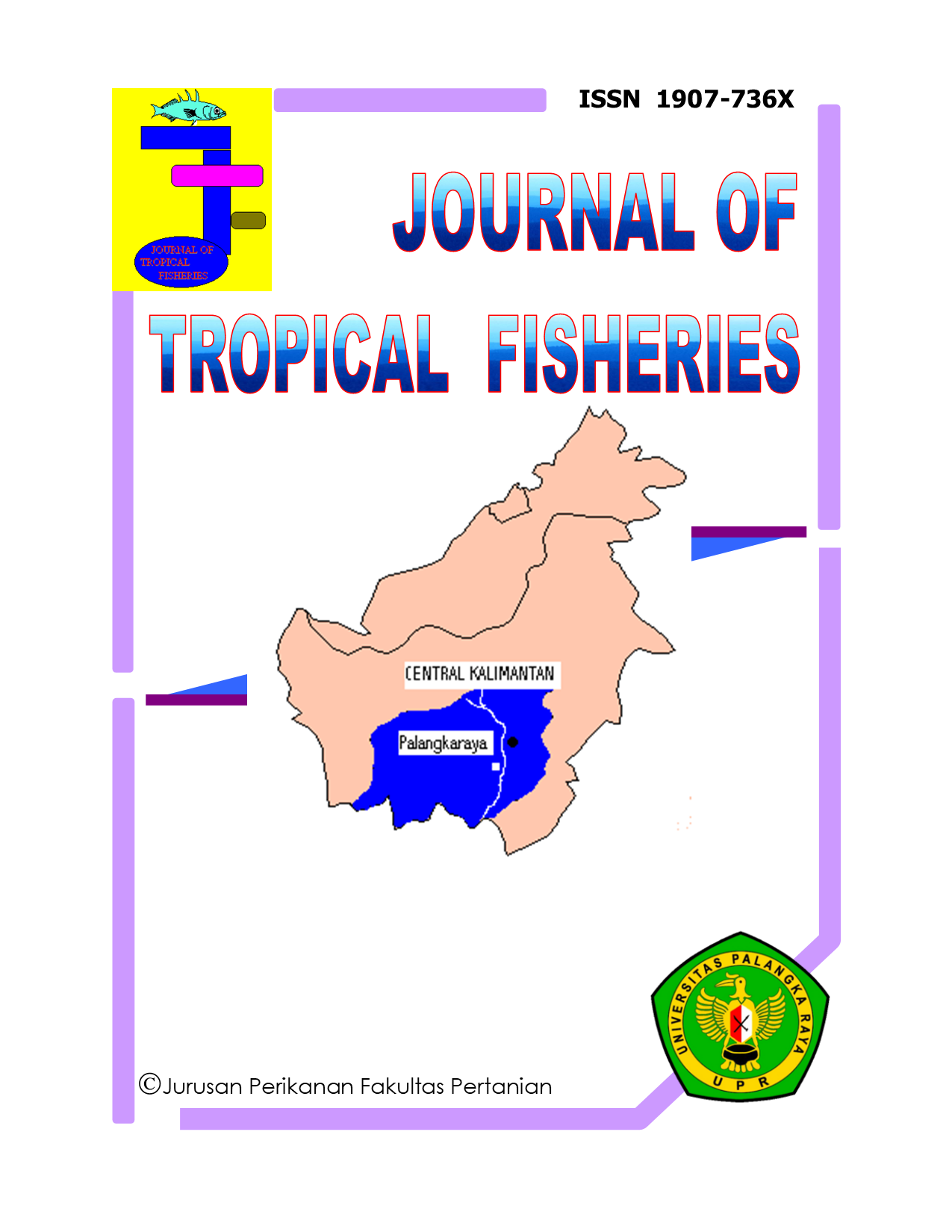 Penelitian perikanan tropis dari perairan darat dan perairan laut, meliputi manajemen sumberdaya perairan dan sosial ekonomi perikanan, budidaya perikanan, teknologi hasil perikanan dan isu lingkungan perairan
Penelitian perikanan tropis dari perairan darat dan perairan laut, meliputi manajemen sumberdaya perairan dan sosial ekonomi perikanan, budidaya perikanan, teknologi hasil perikanan dan isu lingkungan perairan -
Jurnal Jejaring Matematika dan Sains
Jurnal Jejaring Matematika dan Sains managed by the Faculty of Mathematics and Natural Sciences, the University of Palangka Raya with e-ISSN 2686-1658, and p-ISSN 2715-5153 is a place for researchers engaged in Physics, Chemistry and Biology as well as research in the field of Mathematics to be able to publish the results of the research. The main focus of this journal is the management and utilization of unique local potential in Kalimantan for various applications in answering community questions and contributing to the development of science. The Jurnal Jejaring Matematika dan Sains is an Open Access Journal and publishes two times in a year's since 2020.
-
Jurnal Kedokteran Universitas Palangka Raya
- Journal Title: Jurnal Kedokteran Universitas Palangka Raya
- Initials: JKUPR
- Frequency: April dan Oktober
- Print ISSN: 2355-0015
- Online ISSN: 2723-5890
- Editor in Chief: Arif Rahman Jabal, S.Si, M.Si
- DOI: 10.37304/jkupr
- Publisher: Fakultas Kedokteran Universitas Palangka Raya
Jurnal Kedokteran Universitas Palangka Raya dengan scope kesehatan dan kedokteran memuat original article dan review article baik dalam bahasa indonesia dan bahasa inggris. Terbitan 2 kali setahun setiap april dan oktober. Sudah memiliki P-ISSN 2355-0015 dan E-ISSN 2723-5890. Jurnal Kedokteran Universitas Palangka Raya sudah terindeks SINTA 5 sesuai nomor 225/E/KPT/2022 terhitung 2020 sampai 2024.
-
Journal Magister Ilmu Ekonomi Universtas Palangka Raya : GROWTH
Journal Magister Ilmu Ekonomi Universtas Palangka Raya : GROWTH, PRINTP-ISSN 2460-5204 merupakan journal yang menerbitkan hasil penelitian dari Dosen dan Mahasiswa Magister Ilmu Ekonomi Universitas Palangka Raya, Jurnal ini mengulas tentang Ekonomi Pembangunan Khususnya mengenai Perencanaan Pembangunan Daerah dan Keuangan Daerah.
-
Journal Pendidikan Ilmu Pengetahuan Sosial
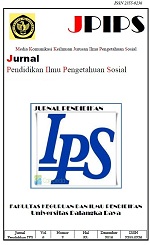
https://doi.org/10.37304/jp-ips.
Jurnal Pendidikan Ilmu Pengetahuan Sosial (JPIPS) Terakreditasi SINTA 5 Mulai Vol 10 No 2 Tahun 2018 sampai dengan Vol 15 No 1 Tahun 2023 berdasarkan SK Menteri Riset dan Teknologi/Kepala Badan Riset dan Inovasi Nasional RI No: 200/M/KPT/2020 Tentang Peringkat Akreditasi Jurnal Ilmiah Periode III Tahun 2020
Welcome to Jurnal Pendidikan Ilmu Pengetahuan Sosial (JPIPS), Department of Economic Education, Faculty of Teacher Training and Education, University Of Palangka Raya in collaboration with Asosiasi Profesi Pendidik Ekonomi Indonesia (ASPROPENDO) Frequency: 2 issues per year (june and December). Print ISSN: 2355-0236 Online ISSN: 2684-6985. Editor's Address Gedung P, UPR Campus Complex Tunjung Nyaho, Jalan Yos Sudarso, Palangka Raya, Central Kalimantan, Indonesia, Postal Code: 73111A, Phone: 082141262814. E-mail: rinto.alexandro@fkip.upr.ac.id / jpips@fkip.upr.ac.id https://e-journal.upr.ac.id/index.php/JP-IPS
Indexed by:
-
Jurnal Pendidikan dan Psikologi: Pintar Harati
- Journal Title: Pintar Harati: Jurnal Pendidikan dan Psikologi
- Initials: JPH
- Frequency: June and December
- Print ISSN: 2301-5993
- Online ISSN: 2715-5633
- Editor in Chief: Rayne Praticia, M.Psi.,Psikolog
- DOI: 10.36873
- Publisher: Universitas Palangka Raya
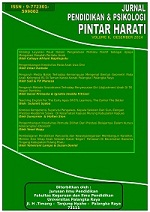
Pintar Harati : Jurnal Pendidikan dan Psikologi
ISSN 9-772301-599002, E-ISSN 2301-5993
Terbit dua kali dalam satu tahun yaitu bulan Juni dan Desember.
Pintar Harati : Jurnal Pendidikan dan Psikologi menerima naskah penelitian terkait pengembangan bidang ilmu pendidikan umum, pendidikan anak usia dini, dan bidang ilmu psikologi pendidikan dan perkembangan.
PERHATIAN
TIM EDITOR HANYA MENERIMA NASKAH YANG DI SUBMIT DENGAN MENGGUNAKAN FILE FORMAT WORD. NASKAH YANG AKAN DI PUBLISH MAKSIMAL SUDAH SUBMIT 1 BULAN.
-
GAMAPROIONUKLEUS
- Journal Title: GAMAPROIONUKLEUS
- Initials: GAMAPROIONUKLEUS
- Frequency: 2 issues per year (May and November)
- Print ISSN: -
- Online ISSN: 2775-7560
- Editor in Chief: Prof. Dr. Agus Haryono, M.Si
- DOI: 10.37304
- Publisher: Jurusan Pendidikan Matematika dan Ilmu Pengetahuan Alam, Fakultas Keguruan dan Ilmu Pendidikan, Universitas Palangka Raya
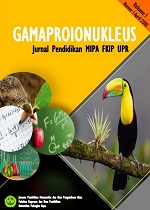
Journal GAMAPROIONUKLEUS adalah journal Pendidikan Matematika dan Ilmu Pengetahuan Alam, Jurusan MIPA, Fakultas Keguruan Dan Ilmu Pendidikan, Universitas Palangka Raya, merupakan sekumpulan jurnal hasil penelitian dibidang pendidikan matematika dan ilmu pengetahuan alam dari Jurusan MIPA FKIP Universitas Palangka Raya dan dari Instanansi lain.
-
Jurnal Pendidikan
Well come to Jurnal Pendidikan, University of Palangka Raya
Journal Summary
Journal Title/Initials: Jurnal Pendidikan (JPN)
Frequency: June & December
Print ISSN/Online ISSN: 1411-481X/2723-0503
Editor in Chief: Dr. Demitra, M.Pd
DOI: https://doi.org/10.52850/jpn.v23i1
Publisher: The Research and Community Service Institution-University of Palangka Raya
Jurnal Pendidikan has been published since June 2000 by The Research and Community Service Institution - University of Palangka Raya with p-ISSN 1411-481X and e-ISSN 2723-0503. Jurnal Pendidikan is published twice a year, every June and December.
Jurnal Pendidikan has been accredited Sinta 5 by the Ministry of Research, Technology, and Higher Education, the Republic of Indonesia effective from 2020-2024.
-
Palangka Law Review
Journal title Palangka Law Review Frequency 2 issues per year DOI prefix 10.52850 
Print ISSN - Online ISSN 2776-4605 Editor-in-Chief Louise Theresia Publisher Faculty of Law, Palangka Raya University, Central Kalimantan, Indonesia Citation Analysis Dimensions |Google Scholar | Sinta Score
Palangka Law Review (PalaRev) is a peer-reviewed journal published by the Faculty of Law, Palangka Raya University, Central Kalimantan, Indonesia. PalaRev is published twice a year in March and September available in the electronic and printed version. Hence, we welcome submission papers in English or Indonesian language.
This journal provides immediate open access to its content on the principle that making research freely available to the public supports a greater global exchange of knowledge.
-
BALANGA: Jurnal Pendidikan Teknologi dan Kejuruan
- Journal Title: Balanga: Jurnal Pendidikan Teknologi dan Kejuruan
- Initials: JBL
- Frequency: 2 issues per year (June and December)
- Print ISSN: 2338-462X
- Online ISSN: 2723-1216
- Editor in Chief: Revianti Coenraad, ST, M. Eng
- DOI: 10.37304
- Publisher: Jurusan Pendidikan Teknologi dan Kejuruan Fakultas Keguruan dan Ilmu Pendidikan Universitas Palangka Raya
- Terakreditasi: SINTA 5
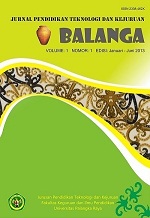
Jurnal Pendidikan Teknologi dan Kejuruan, Fakultas Keguruan dan Ilmu Pendidikan, Universitas palangka Raya
Jurnal Pendidikan Teknologi dan Kejuruan “Balanga” merupakan media untuk publikasi karya ilmiah dan hasil penelitian serta pengabdian kepada masyarakat bagi para akademisi, praktisi dan peneliti dalam bidang pendidikan teknologi dan kejuruan. Jurnal ini dikelola oleh Jurusan Pendidikan Teknologi dan Kejuruan, Fakultas Keguruan dan Ilmu Pendidikan, Universitas Palangka Raya
-
EBONY: Journal of English Language Teaching, Linguistics, and Literature
- Journal Title: Journal of English Language Teaching, Linguistics, and Literature
Initials: EBONY - Frequency: January and July
- ISSN (Print): 2797-4537
- ISSN (Online): 2809-4980
- Language: English
- Editor in Chief: Dr. Iwan Fauzi, S.Pd., M.A.
- DOI: 10.37304/ebony
- Publisher: The Study Program of English Education of Palangka Raya University
- Accreditation: SINTA-4
- Other Journals
The Ebony Journal is a scholarly journal in English that is expected to be a gateway for research publications in the fields of English Language teaching, linguistics, and literature. Ebony is the name of a tree symbolizing philosophical qualities such as strength, lush greenery, sustainability, and a trunk that provides shade to all beneath it. These attributes, along with its three leaves, serve as a metaphor to unify the diverse fields of research in English language pedagogy, linguistics, and literature under the banner of Ebony. As such, educators, scholars, and researchers in these disciplines can come together under Ebony to share both research and non-research articles within a cohesive academic community.
Ebony is an open-access English language journal published biannually in January and July by the English Education Study Program, Faculty of Teacher Training and Education of Palangka Raya University. Ebony only receives manuscripts in the English language.
EBONY has been indexed & abstracted in:
SINTA-4 | GARUDA | CrossRef DOI | Google Scholar | BASE
- Journal Title: Journal of English Language Teaching, Linguistics, and Literature
-
JSM: Jurnal Sains Manajemen
- Journal Title : Jurnal Sains Manajemen
- Initials: JSM
- Frequency: May and November
- P-ISSN: 2302-1411
- E-ISSN: -
- Editor in Chief: Dr. Luluk Tri Harinie, SE., MM
- DOI: -
- Publisher: Prodi Magister Sains Manajemen Fakultas Ekonomi dan Bisnis UPR
- Indexing: Google Scholar
Jurnal Sains Manajemen (JSM) is one of the scientific publications published by Faculty of Economics and Business, University of Palangka Raya. The purpose of the Journal is to support the development of management theory and practice in Indonesia through the dissemination of research findings in the field. The journal covers fields such as Knowledge and People Management, Operations and Performance Management, Business Risk, Finance and Accounting, Entrepreneurship, Strategic Business and Marketing and Decision Making and Strategic Negotiation.
JSM: Jurnal Sains Manajemen provides excellent opportunities for theoretical and empirical scientific development and contributions. However, theoretical papers must generate new testable implications, and empirical papers must theoretically describe developments that are unique and original.
JSM: very open to developing research methods, both quantitative and qualitative research methods, JSM is also open to accepting mixed methods research methods
-
Jurnal Administrasi Publik (JAP)
- Journal Title: Jurnal Administrasi Publik (JAP)
- Initials: JAP
- Frequency: Februari - Oktober
- Print ISSN: 2337-4985
- Online ISSN: 2723-2530
- Editor in Chief: Riamona Sadelman Tulis
- DOI: https://doi.org/10.37304/jap
- Publisher: Fakultas Ilmu Sosial dan Ilmu Politik Universitas Palangka Raya
Jurnal Administrasi Publik (JAP), E-ISSN 2723-2530, P-ISSN 2337-4985 Merupakan Jurnal yang menyajikan berbagai hasil penelitian baik penelitian oleh Dosen Fakultas Ilmu Sosial dan Ilmu Politik Universitas Palangka Raya maupun hasil penelitian dari instansi lain yang berhubungan dengan Administrasi Publik, Journal ini diterbitkan dua kali dalam satu Tahun.
-
Journal Ilmu Sosial, Politik dan Pemerintahan
- Journal Title: Jurnal Ilmu Sosial, Politik dan Pemerintahan (JISPAR)
- Initials: JISPAR
- Frequency: January dan July
- Print ISSN: 2089-6123
- Online ISSN: 2684-9119
- Editor in Chief: Prof. Bhayu Rhama, ST., M.BA., Ph.D
- DOI: 10.37304/jispar
- Publisher: FISIP UNIVERSITAS PALANGKA RAYA

Jurnal Ilmu Sosial dan Ilmu Politik Universitas Palangka Raya (JISPAR) is a peer-reviewed, open-access academic journal published by Universitas Palangka Raya. JISPAR aims to provide a platform for researchers, academics, and practitioners to publish high-quality scholarly work focusing on social sciences, political sciences, public policy, governance, and administrative studies.
The journal publishes empirical research articles, theoretical papers, policy analyses, and critical reviews that contribute to the advancement of knowledge and the development of practical solutions in the social and political sciences.
-
Jurnal Paris Langkis
- Journal Title: Jurnal Paris Langkis
- Initials: Paris Langkis
- Frequency: March and August
- Online ISSN: 2723-7001
- Editor in Chief: Prof. Dr. Eddy Lion, M.Pd
- DOI: https://doi.org/10.37304/paris
- Publisher: Prodi Pendidikan Pancasila dan Kewarganegaraan Fakultas Keguruan dan Ilmu Pendidikan Universitas Palangka Raya

Jurnal Paris Langkis merupakan jurnal Prodi Pendidikan Pancasila dan Kewarganegaraan Fakultas Keguruan dan Ilmu Pendidikan Universitas Palangka Raya. Ruang lingkup pada jurnal ini mencakup tentang pendidikan, pembelajaran, hukum, politik dan sosial-budaya, filosofi, nilai dan etika sosial kemasyarakatan, serta kearifan lokal dalam bingkai pancasila dan undang-undang dasar negara Indonesia tahun 1945. jurnal ini terbit secara berkala 6 bulan sekali pada bulan Agustus dan Maret yang berasal dari penelitian, pengabdian masyarakat, serta karya ilmiah lainnya yang dihasilkan baik dosen, guru maupun mahasiswa. jurnal ini mulai terbit perdana pada 17 Agustus 2020, dengan Surat Keputusan dari Dekan Fakultas Keguruan dan Ilmu Pendidikan No. 3734/ UN24.3/AK/2019 pada tanggal 27 Agustus 2019 tentang Tim Editorial Jurnal.
-
Journal of Environment and Management
- Journal Title: Journal of Environment and Management
- Initials: JEM
- Frequency: February, June, October
- Print ISSN: 2721-0812
- Online ISSN: 2722-6727
- Editor in Chief: Agung Wibowo, Ph.D
- DOI: 10.37304
- Publisher: Program Pascasarjana Universitas Palangka Raya
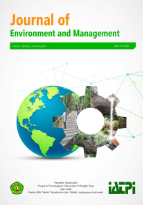
Journal of Environment and Management (JEM) is a scientific, peer reviewed, online and open access journal published jointly by Postgraduate Program of the University of Palangka Raya. JEM is published triannually (February, June, October). JEM is dedicated as disseminating venue for original research, scientific reviews, and conceptual thinking analyzing various environmental issue viewed from technical, socio-cultural, legal, economic and policy perspectives. Broader management studies to optimize resources utilization and to achieve sustainable development goals are also under the scope of JEM. JEM receives manuscripts in Bahasa Indonesia and English.
Indexed by:


-
Journal Compound: Improving the Quality of English Education
- Journal Title: Journal Compound : Improving the Quality of English Education
- Initials: Journal Compound
- Frequency: June and December
- Print ISSN: 2338-4042
- Online ISSN: 2747-0091
- Editor in Chief: Dr. Misrita, S.S., M.Hum.
- DOI: https://doi.org/10.37304/jcp
- Publisher: Program Studi Magister Pendidikan Bahasa Inggris, Program Pascasarjana, Universitas Palangka Raya
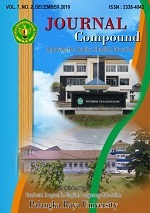
The Journal COMPOUND publishes articles reflecting contemporary issues in English education, encourages original points of view, fostering research that supports teaching, fostering creativity in curriculum design, and engaging our students in work-related learning
-
Edunomics Journal
- Journal Title: Edunomics Journal
- Initials: EJ
- Frequency: January and July
- Print ISSN: 2722-6697
- Online ISSN: 2723-553X
- Editor in Chief: Dr. Rinto Alexandro, MM
- DOI: 10.37304
- Publisher: University Of Palangka Raya
- SINTA 5 (SK NO: 105/E/KPT/2022) VOL 1 NO 1 TAHUN 2020 SD VOL 5 N0 2 TAHUN 2024
- Other Journals

Edunomics Journal published by Faculty of Teacher Training and Education University Of Palangka Raya in Collaboration with Asosiasi Profesi Pendidikan Ekonomi Indonesia (ASPROPENDO). A blind peer-reviewed and open access Journal published twice a year (January and July). Edunomics Journal has an objective to help researchers publish their work for a wider audience and discover new connections. Edunomics Journal consider original research articles and review articles in any research areas of Economic Education.
Edunomics Journal provides informative variety of papers geared toward theory and practice in the following area:
- Issue and ideas, as well as contemporary research findings in the field of economic education
- Innovation in the field of pedagogy, curriculum, hardware, teaching materials, and methods & models in economic learning
- Evaluation of teaching methods, learning attitudes and interests, materials, or processes.
- Reports on events that influence economic education in all levels of education age (from early childhood to adulthood) and three main lines of education, namely formal, nonformal, and informal.
Indexed by:
Call for Paper Vol. 5 No. 2 (2024)
Edunomics Journal invites researchers, scholars and authors to submit their original and extended research to publish in peer reviewed international research journal. All submitted papers will be peer reviewed, publish in online.
Submission deadline : April 2024
Publication date : Juni 2024
-
Balance: Media Informasi Akuntansi dan Keuangan
- Journal Title: Balance: Media Informasi Akuntansi dan Keuangan
- Initials: BALANCE
- Frequency: Januari and July
- Print ISSN: 2085-7349
- Online ISSN: 2829-1581
- Editor in Chief: Fitria Husnatarina
- DOI: https://doi.org/10.52300/blnc
- Publisher: Department of Accounting, Faculty of Economics and Business, Universitas Palangka Raya
Balance: Media Informasi Akuntansi dan Keuangan is a scientific journal published by Universitas Palangka Raya and aims to publish empirical and theoretical study articles in the field of accounting. This journal is published 2 times a year in January and July.
-
Jurnal Teknologi Pendidikan
JOURNAL INFORMATION
- Journal Title: Jurnal Teknologi Pendidikan (JTekpend)
- Initials: JTekpend
- Frequency: January and July
- Print ISSN: 2723-1518
- Online ISSN: 2775-1376
- Editor in Chief: Drs. Orbit Thomas.,M.Pd
- DOI: 10.37304
- Akreditasi : SINTA 6
- Publisher: FKIP Palangka Raya University

Jurnal Teknologi Pendidikan (JTekpend) is a journal published by Faculty of Teacher Training and Education, University of Palangka Raya. Published twice a year in the Januari and July.
JTekpend has an objective to help researchers publish their work for a wider audience and discover new connections. JTekpend consider original research articles and review articles in any research areas of Technology Education.
JTekpend provides informative variety of papers geared toward theory and practice in the following area: research results and scientific thoughts in the fields of education, learning, evaluation, innovation including the development and implementation of new technologies in education and learning.
-
Equity In Education Journal
- Journal Title: Equity in Education Journal
- Initials: EEJ
- Frequency: 2 issues per year (March & October)
- ISSN: 2723-5904 (Online) l 2686-0031 (Print)
- DOI: Prefix 10.37304 by Crossref
- Publisher: Program Studi Manajemen Pendidikan, FKIP Universitas Palangka Raya
- Indexing: Sinta 5 l Google Scholar l Garuda
Equity in Education Journal (EEJ) [e-ISSN: 2723-5904 (online) and p-ISSN: 2686-0031 (print)], is a periodical journal published by the Education Management Study Program, FKIP, University of Palangka Raya (UPR), in collaboration with the Association of Indonesian Education Management/Administration Study Programs (APMAPI). EEJ was first published in 2019, and is regularly published twice a year in March and October. EEJ is accredited by the Arjuna - Ministry of Education, Culture, Research, and Technology, Republic of Indonesia with a Sinta 5 ranked from 2019 to 2026 based on Decree No: 164/E/KPT/2021. Innovative research or ideas/conceptuals of Lecturers, Students, Teachers, Principals, Supervisors, and other Educational Practitioners within the scope of Educational Management, Educational Leadership, Educational Supervision and Educational Policy, that are able to make a positive contribution to improving the quality of education (schools and/or educational institutions) are the focus of this journal.
Equity in Education Journal (EEJ) [e-ISSN: 2723-5904 (online) dan p-ISSN: 2686-0031 (print)], merupakan jurnal terbitan berkala yang diterbitkan oleh Program Studi Manajemen Pendidikan, FKIP, Universitas Palangka Raya (UPR), bekerjasama dengan Asosiasi Program Studi Manajemen/Administrasi Pendidikan Indonesia (APMAPI). EEJ terbit pertama kali pada tahun 2019, dan terbit rutin dua kali setahun pada bulan Maret dan Oktober. EEJ terakreditasi oleh Arjuna - Kementerian Pendidikan, Kebudayaan, Riset, dan Teknologi, Republik Indonesia dengan peringkat Sinta 5 sejak tahun 2019 hingga 2026 berdasarkan Surat Keputusan No: 164/E/KPT/2021. Karya penelitian inovatif ataupun gagasan/konseptual dari Dosen, Mahasiswa, Guru, Kepala Sekolah, Pengawas, serta Praktisi Pendidikan lainnya dalam lingkup Manajemen Pendidikan, Kepemimpinan Pendidikan, Supervisi Pendidikan dan Kebijakan Pendidikan, yang mampu memberikan kontribusi positif terhadap peningkatan mutu pendidikan (sekolah dan/atau lembaga pendidikan) merupakan fokus jurnal ini.
-
Jurnal Sosiologi UPR
Jurnal Sosiologi (JSOS) is serves as a scientific communication medium for studies in Social Sciences, Political Sciences, and Cultural Studies. It is officialy registered with e-ISSN 2776-0758 and ISSN 2239-2274. The journal is published biannually, in March and October, and circulated as an academic publication.
The primary objective of this journal is to facilitate academic discourse among scholars and students on sociologically relevant issues, functioning as a medium for the dissemination of scientific knowledge. It publishes works related to the development of concepts and theoretical studies, scholarly articles, research findings, book reviews, and discussions of current issues pertinent to the fields of Sociology, Politics, and Cultural Studies.
Topics covered include, but are not limited to, social criticism in the relationship between society and corporations, culture and indigenous communities, conflict and integration, pluralism in society, multicultural politics, gender and feminism, and environmental issues.
JSOS offers open access to ensure that the information and findings presented in its articles can benefit a broad audience. All journal articles are freely available for reading and download without any cost (Free of Charge). However, if any data or content from these articles are used as references or supporting material in other works, proper citation and acknowledgment of the original author must be provided.
Journal Description
Journal title
: Jurnal Sosiologi
Initials
: JSOS
Frequency
: 2 Issues Per Year (March & October)
Prefiks DOI
: 10.59700
Online ISSN
Editor In Chief
: Dr. Joni Rusmanto, M.Si.
Publisher
Jurnal Sosiologi Collaborates with the Indonesian Sociology Study Program Association (APSSI) : https://portalapssi.id/jaringan-jurnal-apssi/
-
Pengabdian Kampus : Jurnal Informasi Kegiatan Pengabdian Pada Masyarakat
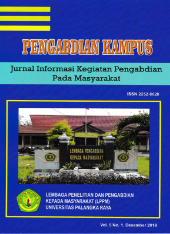 Journal Title: Pengabdian Kampus : Jurnal Informasi Kegiatan Pengabdian Pada MasyarakatInitials: Pengabdian KampusFrequency: Juli dan DesemberPrint ISSN: 2252-8628Online ISSN: 2776-091XEditor in Chief: Dr. Ir. Adi Jaya, MSi.DOI: 10.52850Publisher: Lembaga Penelitian dan Pengabdian Kepada Masyarakat Universitas Palangka Raya
Journal Title: Pengabdian Kampus : Jurnal Informasi Kegiatan Pengabdian Pada MasyarakatInitials: Pengabdian KampusFrequency: Juli dan DesemberPrint ISSN: 2252-8628Online ISSN: 2776-091XEditor in Chief: Dr. Ir. Adi Jaya, MSi.DOI: 10.52850Publisher: Lembaga Penelitian dan Pengabdian Kepada Masyarakat Universitas Palangka RayaPengabdian Kampus diterbitkan sebagai jurnal informasi, komunikasi dan edukasi terhadap konsep, gagasan/ide dan kegiatan/hasil-hasil pengabdian pada masyarakat serta kegiatan/hasil-hasil penelitian maupun informasi lainnya yang bersifat ilmiah dalam berbagai bidang ilmu pengetahuan, teknologi dan seni.
Tujuan penerbitan jurnal ini adalah untuk menyebarluaskan hasil-hasil pengabdian pada masyarakat dan hasil-hasil penelitian serta meningkatkan motivasi dan kreativitas warga kampus dalam menulis karya ilmiah di bidang pengabdian masyarakat dan sebagai sumber informasi bagi berbagai stakeholder terkait dalam pengambilan keputusan.
Naskah Pengabdian Kampus merupakan karya asli yang belum pernah dipublikasikan. Jurnal ini diterbitkan dua kali dalam setahun yaitu bulan Juli dan Desember oleh Lembaga Penelitian dan Pengabdian kepada Masyarakat, Universitas Palangka Raya (LPPM UPR).
Melalui SK Dirjen Dikti Riset dan Teknologi No. 204/E/KPT/2022 tanggal 3 Oktober 2022, Jurnal Pengabdian Kampus terakreditasi Sinta 5 hingga Tahun 2024.
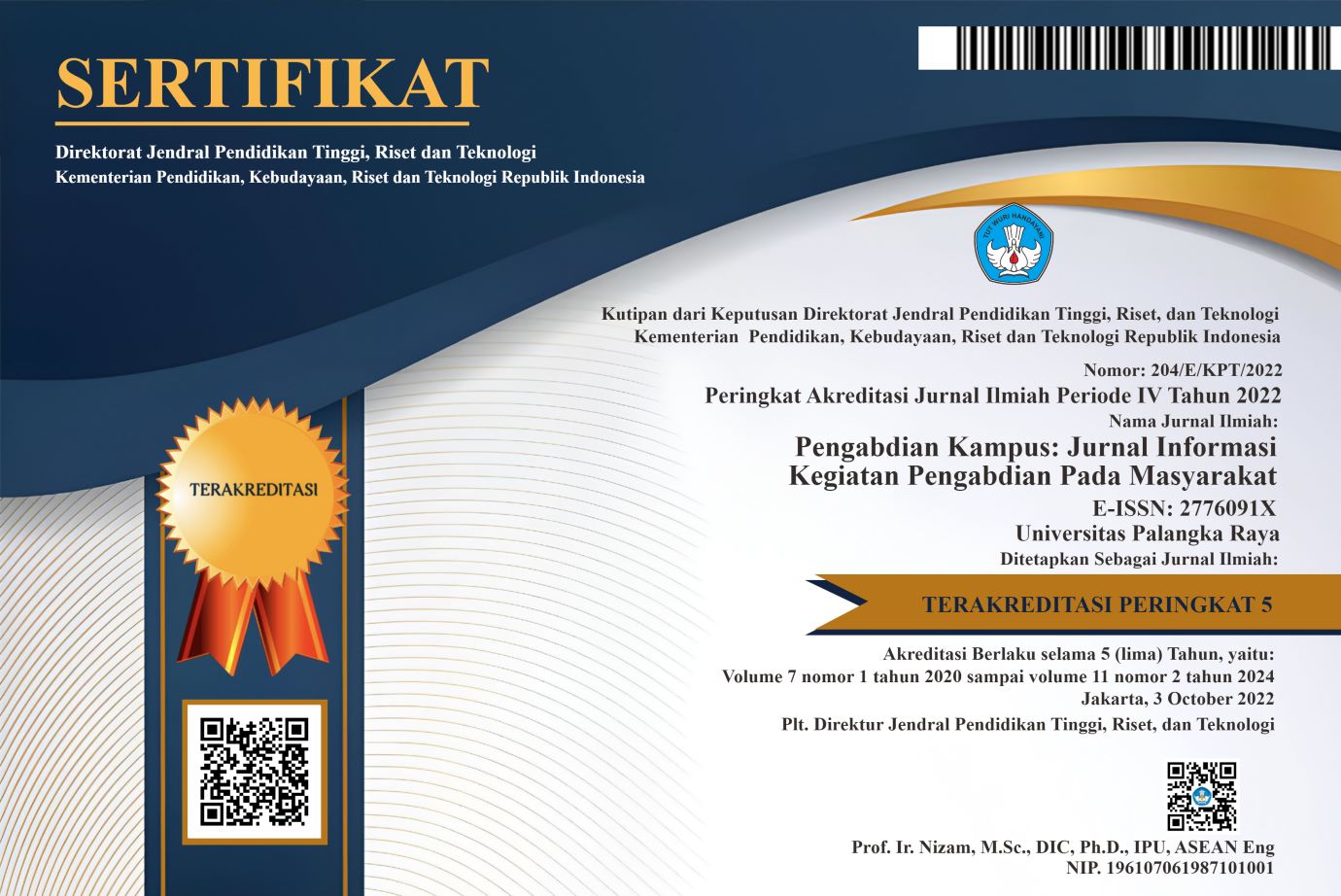
-
Wacana: Jurnal Ilmu Sosial dan Ilmu Politik Interdisiplin
 Wacana: Jurnal Ilmu Sosial dan Ilmu Politik Interdisiplin is a journal published by the Department of Governmental Science, the University of Palangka Raya which contains research results in the fields of social sciences and humanities. The aim of this journal is to publish and disseminate writings in the fields of social sciences and humanities that can contribute to the development of science. Wacana: Jurnal Ilmu Sosial dan Ilmu Politik Interdisiplin is published twice a year in June and December. Wacana: Jurnal Ilmu Sosial dan Ilmu Politik Interdisiplin, accepts writing in the form of quantitative and qualitative research from academics, practitioners, researchers, and students relevant to social science and humanities topics. WACANA Journal is published by the Department of Government Science, Faculty of Social Sciences (FISIP), Palangka Raya University. This journal publishes 10 articles for each volume twice a year in the month of June dan December. If you are interested, we recommend that you read our policies as well as author guidelines.
Wacana: Jurnal Ilmu Sosial dan Ilmu Politik Interdisiplin is a journal published by the Department of Governmental Science, the University of Palangka Raya which contains research results in the fields of social sciences and humanities. The aim of this journal is to publish and disseminate writings in the fields of social sciences and humanities that can contribute to the development of science. Wacana: Jurnal Ilmu Sosial dan Ilmu Politik Interdisiplin is published twice a year in June and December. Wacana: Jurnal Ilmu Sosial dan Ilmu Politik Interdisiplin, accepts writing in the form of quantitative and qualitative research from academics, practitioners, researchers, and students relevant to social science and humanities topics. WACANA Journal is published by the Department of Government Science, Faculty of Social Sciences (FISIP), Palangka Raya University. This journal publishes 10 articles for each volume twice a year in the month of June dan December. If you are interested, we recommend that you read our policies as well as author guidelines.Journal title Wacana: Jurnal Ilmu Sosial dan Ilmu Politik Interdisiplin Subjects https://e-journal.upr.ac.id/index.php/Jwcn/index Language English (preferred), Indonesia E-ISSN 2798-9356 P-ISSN 2355-8326 Frequency Two times a year in June and December DOI 10.37304/wacana (Prefix- by Crossref) Editor in chief Dr. Anyualatha Haridison, M.Si. Publisher Department of Government Science, Faculty of Social Sciences (FISIP), Palangka Raya University. Citation Analysis Google Scholar Wacana: Jurnal Ilmu Sosial dan Ilmu Politik Interdisiplin is in the process of being indexed by:




-
Jurnal Penelitian UPR
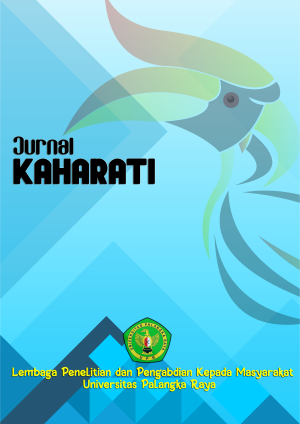
Jurnal Penelitian UPR merupakan jurnal yang mempublikasikan hasil-hasil penelitian multidisiplin mencakup aspek biofisik, sosial ekonomi dan budaya, dalam suatu Wilayah Daerah Aliran Sungai dan apabila memungkinkan lebih mengarah pada Lahan Rawa sesuai Pola Ilmiah Pokok Universitas Palangka Raya dan terbit dua kali setahun di bulan Maret dan September. Artikel yang ditulis dalam Bahasa Indonesia atau Bahasa Inggris. Melalui SK Dirjen Dikti Riset dan Teknologi No. 152/E/KPT/2023 tanggal 25 September 2023, Jurnal Kaharati terakreditasi Sinta 5 hingga Tahun 2026.
Jurnal Penelitian UPR is a journal that publishes the results of multidisciplinary research covering biophysical, socio-economic and cultural aspects, in a watershed area and if possible leads to Tropical Wetlands Ecosystems as mention in UPR mission and published twice a year in March and September. Articles written in Bahasa Indonesia or English. Through the Decree of the Director General of Higher Education, Research and Technology No. 152/E/KPT/2023 dated September 25, 2023, the Kaharati Journal was accredited Sinta 5 until 2026.
- Journal Title: Jurnal Kaharati
- Initials: Penelitian UPR
- Frequency: Maret dan September
- Print ISSN: 2252-8628
- E-ISSN: 27985288
- Editor in Chief: Dr. Ir. Adi Jaya, MSi.
- DOI: 10.36873
- Publisher: Lembaga Penelitian dan Pengabdian Kepada Masyarakat Universitas Palangka Raya
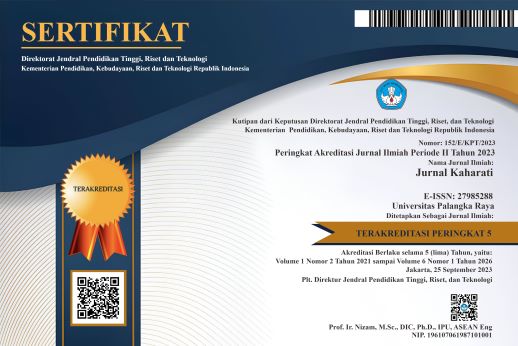
-
Jurnal Bimbingan dan Konseling Pandohop
- Journal Title: Jurnal Bimbingan dan Konseling Pandohop
- Initials: JBKP
- Frequency: March and September
- Online ISSN: 2775-5509
- Editor in Chief: Romiaty, S.Psi.,M.Pd.,Psikolog
- DOI: 2775-5509
- Publisher: Fakultas Keguruan dan Ilmu Pendidikan, Universitas Palangka Raya
- Sinta Indeks: https://sinta.kemdiktisaintek.go.id/journals/profile/11847
- Terakreditasi: SINTA 5
JBKP (Journal of Guidance and Counseling Pandohop) is an academic journal that publishes scholarly works in the field of education, particularly those related to school counseling, career counseling, and higher education counseling. Managed by the Faculty of Teacher Training and Education in Palangkaraya, this journal focuses on research and development in guidance and counseling within schools and educational institutions.
As an academic platform, JBKP provides opportunities for scholars to contribute research articles in the areas of school counseling, career counseling, and higher education counseling, which will be published online. With internet support, this journal expands access to valuable, research-based information and knowledge.
The JBKP journal is published twice a year, in March and September, and is available in both print and digital formats. Each issue presents a variety of educational articles authored by contributors from diverse academic backgrounds. The journal collaborates with local editors from various universities who review each article before publication to ensure quality and relevance.
Every article or paper published in the JBKP journal is expected to be beneficial for readers and to enrich the body of knowledge in the field of guidance and counseling.
-
Journal of Tropical Peatlands

The Journal of Tropical Peatland is a peer-reviewed online journal focusing specifically on tropical peatlands. As a “free-to-users” publication (NO CHARGES to authors OR readers), it is immediately accessible to readers and potential authors worldwide. It is published jointly by the University of Palangka Raya, Indonesia; Borneo Nature Foundation; the International Peatland Society (IPS) and the Peatland Society of Indonesia (HGI)
The Journal of Tropical Peatland publishes papers on all aspects of peatland science, technology and wise use, including:
- ecology, physical geography, chemistry, climatology and climate change, botany, zoology, socio-economics, policy, restoration, (sustainable) management, conservation and related areas
- studies of the above topics for any tropical ecosystem containing peat, irrespective of peat depth or type (e.g. tropical kerangas with a surface peat layer may be included)
Research papers, short communications and review articles on these and related topics will all be considered; and suggestions for special issues of the Journal based on the proceedings of conferences, seminars, symposia and workshops will be welcomed. The submission of material by authors and from countries with tropical peatlands and whose work would otherwise be inaccessible to the international community is particularly encouraged.
- Journal Title: Journal of Tropical Peatland
- Initials: JTP
- Frequency: June and December
- Print ISSN: -
- Online ISSN: -
- Editor in Chief: Dr. Ir. Adi Jaya, MSi.
- DOI: 10.36873
- Publisher: UPT CIMTROP and BNF
-
ENGGANG: Jurnal Pendidikan, Bahasa, Sastra, Seni, dan Budaya
- Journal Title: ENGGANG: Jurnal Pendidikan, Bahasa, Sastra, Seni, dan Budaya
- Initials: ENGGANG
- Frequency: Juni dan Desember
- Print ISSN: 2746-7708
- Online ISSN: 2827-9689
- Editor in Chief: Dr. Misnawati, S.Pd., M.Pd
- DOI: 10.37304
- Publisher: Fakultas Keguruan dan Ilmu Pendidikan, Universitas Palangka Raya
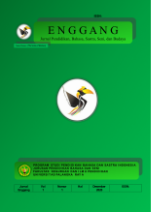
Enggang adalah jurnal pendidikan, bahasa, sastra, seni, dan budaya yang terakreditasi Peringkat 5 mulai Volume 1 Nomor 1 Tahun 2020 sampai Volume 5 Nomor 2 Tahun 2024. Jurnal ini merupakan salah satu wadah untuk mengumpulkan dan melestarikan kekayaan kita yang tidak ternilai harganya. Tentunya kekayaan yang berhubungan dengan pendidikan bahasa, sastra, seni, dan budaya.
Jurnal ini hadir untuk siapa saja yang mencintai dan ingin berkarya di bidang pendidikan, bahasa, sastra, seni, dan budaya. Selain itu, kami sebagai pengurus jurnal ini bersedia memberikan bimbingan dan pelatihan untuk siapa saja yang ingin maju dan berkompeten dalam hal menulis karya fiksi maupun nonfiksi. Melalui bimbingan dan pelatihan pasti gairah menulis para calon pendidik, para pendidik, dan para pecinta pendidikan, bahasa, sastra, seni, dan budaya bangkit dengan semangat membara. Mari kita berkarya dan berinovasi dalam bidang pendidikan, bahasa, sastra, seni, dan budaya.
-
Jurnal Manajemen Sains dan Organisasi
- Journal Title: Jurnal Manajemen Sains dan Organisasi (JMSO)
- Initials: JMSO
- Frequency: April, August, and December
- P-ISSN: 2685-4724
- E-ISSN: 2798-9577
- Editor in Chief: Dr. Roby Sambung, SE., M.M
- DOI: 10.52300
- Publisher: Jurusan Manajemen, Fakultas Ekonomi dan Bisnis, Universitas Palangka Raya
- Indexing: SINTA 5 | GOOGLE SCHOLAR|GARUDA|CROSSREF|BASE|IOS
Focus and Scope JMSO: Journal of Science and Organization Management is a scientific medium for exchanging information and scientific papers between teaching staff, alumni, students, practitioners, and observers of science in fields such as Human Resource Management, Marketing Management, financial management, operational management, strategic management, organizational behavior, leadership,
a business strategy, entrepreneurship, and innovation, Knowledge management.This journal will be published 2 times a year.
-
Majalah Ilmiah KKN Tematik LPPM UPR
Majalah Ilmiah KKN-T Universitas Palangka Raya adalah wadah publikasi dari hasil kegiatan mahasiswa selama melaksanakan KKN di desa. Majalah ini berisi artikel-artikel yang merupakan rangkuman dari salah satu tema yang dilakukan oleh mahasiswa selama kegiatan KKN di desa.
-
PARENTAS: Jurnal Mahasiswa Pendidikan Teknologi dan Kejuruan
- Journal Title: PARENTAS: Jurnal Mahasiswa Pendidikan Teknologi dan Kejuruan
- Initials: PTS
- Frequency: 2 issues per year (Juni and December)
- Print ISSN: 2443-227X
- Online ISSN: 2777-144X
- Editor in Chief: Revianti Coenraad, ST, M. Eng
- DOI: 10.37304
- Publisher: Jurusan Pendidikan Teknologi dan Kejuruan Fakultas Keguruan dan Ilmu Pendidikan Universitas Palangka Raya
- Terakreditasi: SINTA 5

Jurnal PARENTAS, ISSN 2443-227X, Merupakan jurnal hasil karya ilmiah mahasiswa di jurusan Pendidikan Teknologi Dan Kejuruan FKIP UPR yang sudah terakreditasi sinta 5, Secara berkala Journal Parentas diterbitkan setahun 2 (dua) kali yaitu di bulan Juni dan Desember. Artikel yang diterima dari penulis/author diselaraskan dengan tema utama Journal Parentas yaitu di bidang ilmu pendidikan kejuruan dan bidang teknik lainnya.
-
Jurnal Tambuleng: Pendidikan Seni Drama, Tari dan Musik
- Journal Title: Jurnal Tambuleng: Pendidikan Seni Drama, Tari dan Musik
- Initials: Tambuleng
- Frequency: Juni dan Desember
- Print ISSN: 2747-044X
- Online ISSN: -
- Editor in Chief: Jimy O. Andin, S.Sn.,M.Pd
- DOI: 10.37304
- Publisher: Fakultas Keguruan dan Ilmu Pendidikan, Universitas Palangka Raya

JURNAL Tambuleng: Pendidikan Seni Drama, Tari dan Musik.
Volume 1, Nomor 1, Desember 2020
"Tambuleng" berangkat dari pengistilahan dalam bahasa Dayak Ngaju, yang berarti pusat lingkaran akar rambut yang memutar di kepala. Orang Dayak percaya, Tambuleng merupakan pusat wawasan hidup, sakralitas dan spiritualitas manusia sejak dilahirkan dan berkehidupan ke dunia, dimana melalui doa-doa dan atas restu dari Tuhan Yang Maha Esa, si pemilik Tambuleng diharapkan dapat menjalani kodrat hidupnya yang Mulia, Pintar dan Bijaksana, Bermartabat dan berKetuhanan. Atas dasar pemaknaan itu, melalui Jurnal Tambuleng diharapkan Karya-karya tulisan ilmiah yang ada dalam jurnal (oleh dosen/mahasiswa maupun akademisi secara kolaborasi), hakekatnya diharapkan sebagai doa, harapan, sekaligus suatu buah alam, alim/ulam, serta ilmu berdimensi seni dan kebudayaan yang dapat diamalkan/terapkan untuk mendasari kehidupan, serta menuntun kepada kehidupan dunia/akherat yang lebih baik. Semoga Jurnal ini juga dapat bertumbuh kembang secara baik dan berdaya manfaat ke depan.
-
BiosciED: Journal of Biological Science and Education
BiosciED is a Peer-Reviewed journal that is published 2 (two) times a year in June and December. BiosciED is an acronym for Biological Science and Education representing the focus and scope as a Biology Education journal which include research related to the field of biological sciences and the field of biology education. BiosciED journal aims to become a forum for publishing high quality and innovative scientific works providing new information and knowledge or new insights. BiosciED is published in English and Bahasa Indonesia and started by Volume 2, Number 1, June 2021. Nationally Accredited based on the Decree of the Ministry of Education, Culture, Research and Technology of the Republic of Indonesia, Number 76/E/KPT/2023 as a SINTA 5 Journal (for 2020-2024).
Indexed by: Sinta, Google Scholar, Garuda, Neliti, Base, Citefactor, Crossref, Indonesia One Search, Publons, Citefactor, BASE
- Journal Title: BiosciED: Journal of Biological Science and Education
- Initials: BiosciED
- Grade: Sinta 5 Journal Decree: 79/E/KPT/2023
- Frequency: June dan December
- Print ISSN: 2746-9786
- Online ISSN: 2775-6777
- Editor in Chief: Elga Araina, S.Si., M.Pd.
- DOI: 10.37304
- Publisher: Faculty of Teacher Training and Education, University of Palangka Raya
-
Bahana Pendidikan: Jurnal Pendidikan Sains

- Journal Title: Jurnal Pendidikan Sains: Bahana Pendidikan
- Initials: BPJPS
- Frequency: Twice a year (June and December)
- Print ISSN: 2716-3431
- Online ISSN: 2807-2154
- Editor in Chief: -
- DOI: 10.36873
- Publisher: Universitas Palangka Raya
Bahana Pendidikan: Jurnal Pendidikan Sains is a scientific journal published by the Physics Education Study Program, FKIP University of Palangka Raya. This journal aims to accommodate research articles in the field of Science Education. In the end, this journal is expected to describe the development of science and technology in science education for people in Central Kalimantan (in particular) and Indonesia (in general). This journal is planned to be published twice a year.
-
Betang Animal Science and Technology Journal (BASTJ)
Betang Animal Science and Technology Journal (BASTJ) adalah majalah ilmiah berkala yang terbit 2 kali per tahun pada bulan Februari dan Agustus. BASTJ mempublikasikan artikel ilmiah/hasil penelitian (research paper), tinjauan artikel (articles review) dan opini/catatan (notes), baik dalam Bahasa Indonesia atau Bahasa Inggris.
-
Journal of Information Technology and Computer Science
Journal title
Initials
Frequency
DOI
Print ISSN
Online ISSN
Editor-in-chief
Managing Editor
Publisher
Indexing
: Journal of Information Technology and Computer Science
: JOINTECOMS
: 4 issues per year
: doi.org/10.47111/jointecoms by
: 2798-284X
: 2798-3862
: Tomas Leonardo, S.T., M.T.I.
: Putu Bagus A. A. Putra, ST., M.Kom
: Teknik Informatika, Universitas Palangka Raya
: CROSSREF | BASE | Google Scholar
JOINTECOMS (Journal of Information Technology and Computer Science) is a journal managed and published by the Informatic Engineering, University of Palangka Raya, Indonesia. JOINTECOMS has a publishing period four times in a year, namely in March, June, September, and December.
Focus and scope of JOINTECOMS includes:
(1) Artificial Intelligence, (2) Image Processing and Pattern Recognition, (3) Data Mining, (4) Data Warehouse, (5) Big Data, (6) Data Analytics, (7) Data Science, (8) Natural Language Processing, (9) Software Engineering, (10) Information System, (11) Information Retrieval, (12) Mobile and Web Technology, (13) Geographical Information System, (14) Decission Support System, (15) Virtual Reality, (16) Augmented Reality, (17) IT Incubation, (18) IT Governance, (19) Internet of Thing
All articles in JOINTECOMS will be processed by the editor through the Online Journal System (OJS), and the author can monitor the entire process in the member area. Articles published in JOINTECOMS , both in hardcopy and soft copy, are available as open access licensed under a Attribution-NonCommercial-ShareAlike 4.0 International (CC BY-NC-SA 4.0) for educational, research and library purposes, and beyond that purpose, the JOINTECOMS editorial board is not responsible for copyright infringement.
We invite you to collect articles / papers on JOINTECOMS . The collection of articles in the JOINTECOMS opens year-round and will be published four times in a year, namely in March, June, September, and December. We do PEER REVIEW to maintain quality publications.
OAI Address
JOINTECOMS has OAI address : http://e-journal.upr.ac.id/index.php/jcoms/oaiBefore submission,
You have to make sure that your paper is prepared using the JOINTECOMS paper TEMPLATE, has been carefully proofread and polished, and conformed to the author guidelines.Online Submissions
- Already have a Username/Password for JOINTECOMS ? GO TO LOGIN
- Need a Username/Password? GO TO REGISTRATION
Registration and login are required to submit items online and to check the status of current submissions.
-
JEPP : Jurnal Ekonomi Pembangunan Dan Pariwisata
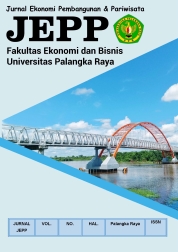 JEPP : Jurnal Ekonomi Pembangunan Dan Pariwisata. JEPP dikelola oleh dosen-dosen Jurusan Ekonomi Pembangunan Fakultas Ekonomi dan Bisnis Universitas Palangka Raya. JEPP merupakan jurnal yang menyajikan artikel terkait Ilmu Ekonomi, Ekonomi Pembangunan dan Pengembangan Pariwisata dengan menggunakan analisis kuntitatif maupun kualitatif. Jurnal ini terbit setiap 2 (dua) kali setahun pada bulan Juli dan Januari.
JEPP : Jurnal Ekonomi Pembangunan Dan Pariwisata. JEPP dikelola oleh dosen-dosen Jurusan Ekonomi Pembangunan Fakultas Ekonomi dan Bisnis Universitas Palangka Raya. JEPP merupakan jurnal yang menyajikan artikel terkait Ilmu Ekonomi, Ekonomi Pembangunan dan Pengembangan Pariwisata dengan menggunakan analisis kuntitatif maupun kualitatif. Jurnal ini terbit setiap 2 (dua) kali setahun pada bulan Juli dan Januari. -
Jurnal ALiBi - Jurnal Arsitektur dan Lingkungan Binaan
Jurnal Alibi merupakan Jurnal dibawah naungan Jurusan/ Prodi Arsitektur Universitas Palangka Raya yang terbit sebanyak 2 edisi setiap tahunnya. Masing-masing Edisi akan memuat 6 artikel setiap bulan Mei dan November. Jurnal Alibi terbuka bagi para peneliti, simpatisan riset, dan masyarakat umum yang memiliki passion di bidang penulisan artikel berbasis penelitian untuk bergabung mengirimkan naskahnya ke Redaksi Jurnal Alibi melalui Link Submission .
Jurnal ini bebas diakses melalui laman website OJS
-
BOHR : Jurnal Cendekia Kimia
Bohr: Jurnal Cendikia Kimia adalah sebuah jurnal single blind-review yang didedikasikan sebagai jurnal ilmiah untuk publikasi penelitian mahasiswa dan dosen dalam bidang Ilmu Kimia dan penerapannya. Semua artikel dalam jurnal ini bersifat akses terbuka yang memungkinkan artikel tersedia secara bebas dalam jaringan tanpa berlangganan apapun.
-
Sangkalemo : The Elementary School Teacher Education Journal
- Judul Jurnal: Sangkalemo: The Elementary School Teacher Education Journal
- Inisial: SANGKALEMO
- Frekuensi: Januari - Juli
- ISSN Online: 2828-0520
- Pemimpin Redaksi: Roso Sugiyanto, S.Pd.,M.Pd.
- DOI: 10.37304
- Penerbit: Prodi PGSD Fakultas Keguruan dan Ilmu Pendidikan Universitas Palangka Raya
SANGKALEMO, The Elementary School Teacher Education Journal telah memiliki E ISSN 2828-0520. SANGKALEMO merupakan kumpulan artikel ilmiah dari hasil penelitian, kajian teori dan pengembangan bidang pendidikan sebagai referensi dan sarana publikasi bagi dosen, guru, mahasiswa dan prakatisi pendidikan di bidang Pendidikan Guru Sekolah Dasar. SANGKALEMO terbit setiap dua periode sekali yaitu pada bulan Januari dan bulan Juli.
-
Diteksi : Jurnal Pengabdian Kepada Masyarakat
1. Journal Title: Diteksi : Jurnal Pengabdian Kepada Masyarakat
2. Initials: Diteksi
3. Frequency: May and November
4. ISSN: 2987-5498 (Media Online)
5. Editor in Chief: Dr. Rudi Waluyo, S.T., M.T.
6. DOI: 10.36873
7. Publisher: Fakultas Teknik, Universitas Palangka Raya, Indonesia
Diteksi : Jurnal Pengabdian Kepada Masyarakat published by the Faculty of Engineering, University of Palangka Raya is a peer-reviewed journal containing scientific articles from various disciplines adopted in various community service activities and other applied research results.
Indexed by : Google Scholar, Garuda, Crossref, Dimensions
-
JEMBA: Jurnal Ekonomi Pembangunan, Manajemen & Bisnis, Akuntansi

Jurnal Ekonomi Pembangunan, Manajemen dan Bisnis, Akuntansi.
The platform serves as a forum for the dissemination of research findings contributed by students, faculty, and researchers, with direct implications for societal, governmental, and business realms. Manuscripts in both Indonesian and English languages are welcomed, and the publication schedule follows a biannual cycle, releasing issues in March and September.
The journal encompasses a broad scope, including but not limited to Macroeconomics, Microeconomics, Development Economics, Marketing Management, Financial Management, Business Strategy, Accounting, HR Management, Employee Performance, Consumer Behavior, Innovation, Entrepreneurship, and various other pertinent subjects.
EISSN : 2809-7408
DOI : https://doi.org/10.52300/jemba.v2i2
-
Jurnal Basement : Jurnal Teknik Sipil
1. Journal Title: Jurnal Basement: Jurnal Teknik Sipil
2. Initials: Jurnal Basement
3. Frequency: February and August
4. ISSN: 2985-9247 (Media Online)
5. Editor in Chief: Dr. Rudi Waluyo, S.T., M.T.
6. DOI: 10.36873
7. Publisher: Program Studi Teknik Sipil, Fakultas Teknik, Universitas Palangka Raya
Jurnal Basement: Jurnal Teknik Sipil is published twice a year, in February and August, published by Program Studi Teknik Sipil, Fakultas Teknik, Universitas Palangka Raya. Address of the Editorial Board: Program Studi Teknik Sipil, Fakultas Teknik, Universitas Palangka Raya, Kampus UPR Tunjung Nyaho Jalan Hendrik Timang, Palangka Raya (73111), Kalimantan Tengah, Email: basement@upr.ac.id, Web: http://e-journal.upr.ac.id/index.php/basement
Indexed by : Google Scholar, Garuda, Crossref, Dimensions
-
Journal of Peat Science and Innovation
Journal of Peat Science and Innovation (JPSI) is a peer-reviewed journal published by the Center for Development of Science, Technology, and Peatland Innovation (PPIIG) University of Palangka Raya. JPSI is an open-access journal that publishes significant and important research on peatlands and wetlands from various disciplines, such as Natural Science, Engineering Science, and Social Science.
JSPI is collaborated with PERTALINDO (Perkumpulan Tenaga Ahli Lingkungan Hidup Indonesia or Indonesian Association of Environmental Experts) Central Kalimantan Chapter.
- Journal Title: Journal of Peat Science and Innovation
- Initials: JPSI
- Abbreviation: J. Peat Sci. Inn.
- Frequency: 2 Issues per year (June dan December)
- ISSN: 2964-0547
- Editor in Chief: Nomeritae, S.T., M.Eng., Ph.D.
- Managing Editor: [1] Chaidir Adam, S.Pd., M.Pd. [2] M. Arief Rafsanjani, S.Ant., M.A.
- DOI: Prefix 10.59032 by Crossref
- Publisher: Center for Development of Science, Technology, and Peatland Innovation (PPIIG) University of Palangka Raya
-
Barigas: Jurnal Riset Mahasiswa
- Journal Title: Barigas: Jurnal Riset Mahasiswa
- Initials: Barigas
- Frequency: Maret, Juli, dan Oktober
- Print ISSN:-
- Online ISSN: 3025-5643
- Editor in Chief: Arif Rahman Jabal, S.Si, M.Si
- DOI:10.37304/barigas
- Publisher: Fakultas Kedokteran Universitas Palangka Raya
Barigas: Jurnal Riset Mahasiswa dengan scope kesehatan dan kedokteran memuat original article dan review article baik dalam bahasa indonesia dan bahasa inggris. Terbit 3 kali setahun setiap bulan maret, juli, dan oktober.
Scope Barigas Jurnal Riset Mahasiswa in health and medicine contains original articles and review articles in Indonesian and English. Barigas Jurnal Riset Mahasiswa is published thrice yearly in March, July, and October.
-
Journal of Biotropical Research and Nature Technology
Journal of Biotropical Research and Nature Technology (J.Biotropica. Res. Nat. Technol.) is an open access, peer-reviewed journal dedicated to the publication of novel research concerned with the advancement of Biodiversity studies of Wetland tropical. It publishes original research articles, short communication, reviews or results of case study and projects base learning (PJBL) on the following subjects: (Studies on Biodiversity, Ecological Wetland; and Studies Potential Biology)
-
Saujana: Jurnal Tata Ruang
Saujana: Jurnal Tata Ruang It is an open access publication (e-journal) that focuses on scientific work in the subject of technology and applications for regional and urban planning, encompassing the fields of architecture, civil engineering and environment. Articles are published twice a year (2 editions per year). This journal was established by the Postgraduate Program, Regional and Urban Master Study Program, University of Palangka Raya (UPR).Journal title : Saujana: Jurnal Tata Ruang Initials : saujana Frequency : 2 issues per year (April and October) Prefiks DOI : 10.36873 Online ISSN : XXXX_XXXX Editor In Chief : Herwin Sutrisno Publisher : Universitas Palangka Raya -
Askara Satya
Jurnal Informasi Pelayanan dan Kesehatan Masyarakat adalah jurnal ilmiah yang diterbitkan oleh Program Pendidikan Dokter, Fakultas Kedokteran, Universitas Palangkaraya, yang bekerja sama dengan Badan Eksekutif Mahasiswa (BEM). Jurnal ini didedikasikan untuk menerbitkan artikel ilmiah yang membahas berbagai aspek dan perspektif dalam pengabdian masyarakat dan kesehatan. Jurnal ini tersedia dalam versi online dan terbit 2 kali setahun, yaitu pada bulan Januari dan Agustus.
-
Jurnal Keolahragaan JUARA
- Journal Title: Jurnal Keolahragaan JUARA
- Initials: Jurnal Keolahragaan JUARA
- Frequency: Mei dan November
- Online ISSN: 2986-3570
- Print ISSN: 2774-7867
- Editor in Chief: Uswatun Hasanah P S, S.KM., M.Kes
- DOI: https://doi.org/10.37304
- Publisher: Universitas Palangka Raya
- Other Journals
Jurnal keolahragaan JUARA adalah jurnal penelitian tentang berbagai aspek Ilmu Keolahragaan, meliputi : pengembangan keterampilan atlet, pembinaan bakat olahraga, kinesiologi, biomekanika.,Pendidikan Olahraga, meliputi : metode dan media pembelajaran PJOK, pengembangan keterampilan olahraga siswa. Kesehatan Olahraga, meilputi : pendidikan dan promosi kesehatan, pencegahan dan perawatan cedera olahraga, komponen kebugaran jasmani dan bentuk postur tubuh, gizi olahraga, serta kegiatan Unit Kesehatan Sekolah (UKS). Teknologi keolahragaan, meliputi : sarana dan prasarana pelatihan olahraga. Olahraga Masyarakat meliputi : pemanfaatan waktu dalam berolahraga, pemanfaaatan fasilitas umum untuk berolahraga, rekreasi dengan berolahraga. Sosiologi olahraga meliputi : kejadian/gambaran masyarakat berolahraga. Untuk dipertimbangkan dalam publikasi, naskah harus asli dan relevan dengan topik yang disebutkan sebelumnya. Jurnal juga menerbitkan artikel review dan resensi buku. Diterbitkan dua kali dalam setahun, setiap bulan Mei dan November. Ini diterbitkan oleh Jurusan Pendidikan Jasmani, Kesehatan, dan Rekreasi Fakultas Keguruan dan Ilmu Pendidikan Universitas Palangka Raya. Pembaca jurnal ini mencakup akademisi hingga praktisi dari berbagai disiplin ilmu dan sesuai dengan topik. Semua artikel yang diterbitkan dalam jurnal ini telah menjalani tinjauan sejawat yang ketat, berdasarkan penyaringan editor.
-
JURNAL PENGELOLAAN SUMBERDAYA ALAM DAN LINGKUNGAN (JPSAL), Program Studi Pascasarjana Pengelolaan Sumberdaya Alam dan Lingkungan Universitas Palangka Raya
Jurnal Pengelolaan Sumberdaya Alam dan Lingkungan (JPSAL) adalah media ilmiah yang mempublikasikan hasil penelitian, kajian, dan pengembangan dalam bidang pengelolaan sumberdaya alam serta lingkungan. JPSAL bertujuan menjadi sarana penyebarluasan informasi dan inovasi yang berkontribusi pada keberlanjutan ekosistem dan kesejahteraan masyarakat. Read More
PENERBIT
Journal Title :Program Studi Magister Pengelolaan Sumberdaya Alam dan Lingkungan
Initials :JPSAL Frequency :Terbit Dua Kali dalam satu Tahun, yaitu Februari dan Agustus
E-ISSN : Chief Editor
Pic
DOI Prefix : Publisher
:Program Studi Magister Pengelolaan Sumberdaya Alam dan Lingkungan, Program Pascasarjana, Universitas Palangka Raya
Accreditation : - -
NAWASENA : JOURNAL OF COMMUNITY SERVICE
NAWASENA: Journal of Community Service is Journal of University Palangka Raya. Journal This Published 2 times in a year on April and November. This journal publish articles scientific multidisciplinary covering results activity community service to society.
This Journal load various activities carried out by academician in handle and manage various potential, challenge and problems that exist in society. Implementation services also involve public participation and partner cooperation.
-
J-SEA (Journal Socio Economic Agricultural)
Journal Title : J-SEA (Journal Socio Economic Agricultural) Initials : J-SEA Frequency : 2 kali tiap tahun (Februari dan Agustus) E-ISSN : 2716-3318 Chief Editor : Dr. Eti Dewi Nopembereni, S.P., M.P DOI Prefix : 10.52850/jsea Publisher : Program Studi Agribisnis Universitas Palangka Raya Accreditation : Sedang Proses J-SEA (Journal Socio Economic Agricultural) adalah wadah akademik untuk penelitian orisinal dan kajian pustaka dari akademisi, peneliti, mahasiswa, serta praktisi. Jurnal ini mencakup berbagai aspek dalam bidang Sosial Ekonomi Pertanian dan Agribisnis,
-
SIPET Journal (Scientific Investigations of Physical Science and Engineering in the Tropics)
SIPET Journal (Scientific Investigations of Physical Science and Engineering in the Tropics) is open access, single-blind peer-reviewed Journal devoted to the discussion of original works addressing physical science and engineering topics as well as their applications in tropical regions.
- Journal Title: SIPET Journal (Scientific Investigations of Physical Science and Engineering in the Tropics)
- Initials: SIPET
- Abbreviation: Sipet J.
- Frequency: 2 Issues per year
- Print ISSN:
- Online ISSN:
- Editor in Chief: Thathit Suprayogi, M.Si.
- DOI:
- Publisher: University of Palangka Raya
-
Lex Scientia Law Journal

Lex Scientia Law Journal is a scientific journal published by Palangkaraya University and managed by a master of law with E-ISSN number: XXXX-XXXX that focuses on the publication of research results, articles, and case studies. The Focus Of The Lex Scientia Law Journal Is To Publish Manuscripts Of Outcome Studies And Conceptual Ideas Specific To The Field Of Legal Science. The Journal Aims To Provide A Forum For Lecturers And Researchers In Applied Legal Science To Publish Original Articles. The Scope Of The Lex Scientia Law Journal Includes Civil Law, Criminal Law, Environmental Law, International Law, Islamic Law, Agrarian Law, Administrative Law, Criminal Procedural Law, Commercial Law, Constitutional Law, Dat Law, And Other Studies Of Law. Authors who want to submit their manuscript to the editorial office of Lex Scientia Law Journal should follow the writing guidelines. If the manuscript submitted is not appropriate with the guidelines or written in a different format, it will BE REJECTED by the editors before further review. The editors will only accept manuscripts that meet the assigned format.
Registration and login are required to submitted items online and to check the status of current submissions.
-
Jurnal Abdi Kahayan
- Nama Jurnal : Kahayan : Jurnal Pengabdian Kepada Masyarakat
- Inisial : J.A.K
- Frekuensi : Maret, Juli, November
- Online ISSN : 3089-1833
- Editor in Chief : Kharisma Nugraha Putra, SE., M.S.A.
- Managing of Editor : Triyani, S.Pd., M.Pd.
- DOI : 10.37304
- Penerbit : Jurusan Pendidikan Ilmu Pengetahuan Sosial, FKIP UPR
- Tentang Jurnal : Kahayan : Jurnal Pengabdian Kepada Masyarakat diterbitkan oleh Jurusan Pendidikan Ilmu Pengetahuan Sosial Fakultas Keguruan dan Ilmu Pendidikan Universitas Palangka Raya. Kahayan : Jurnal Pengabdian Kepada Masyarakat mempublikasikan hasil pengabdian kepada masyarakat dari berbagai bidang keilmuan. Jurnal ini bertujuan untuk menginspirasi kolaborasi antar bidang, mengembangkan solusi inovatif, serta menyebarluaskan pengetahuan yang bermanfaat bagi masyarakat. Kami mengundang para peneliti, akademisi, dan praktisi untuk berkontribusi dalam jurnal ini, dengan harapan dapat bersama-sama membangun jembatan pengetahuan yang memperkuat keterhubungan antara akademisi dan Masyarakat.
-
Journal of Islamic Education and Intellectual Discourse
Journal of Islamic Education and Intellectual Discourse (JIED) is managed by the Pancasila and Citizenship Education Study Program, Faculty of Teacher Training and Education (FKIP), University of Palangka Raya.



